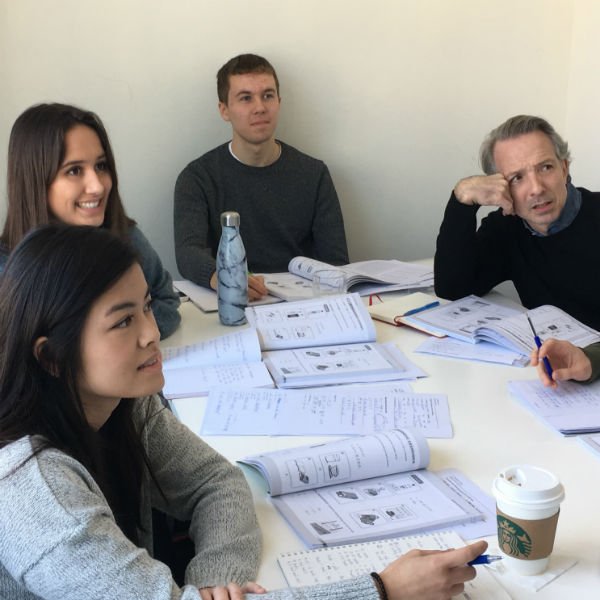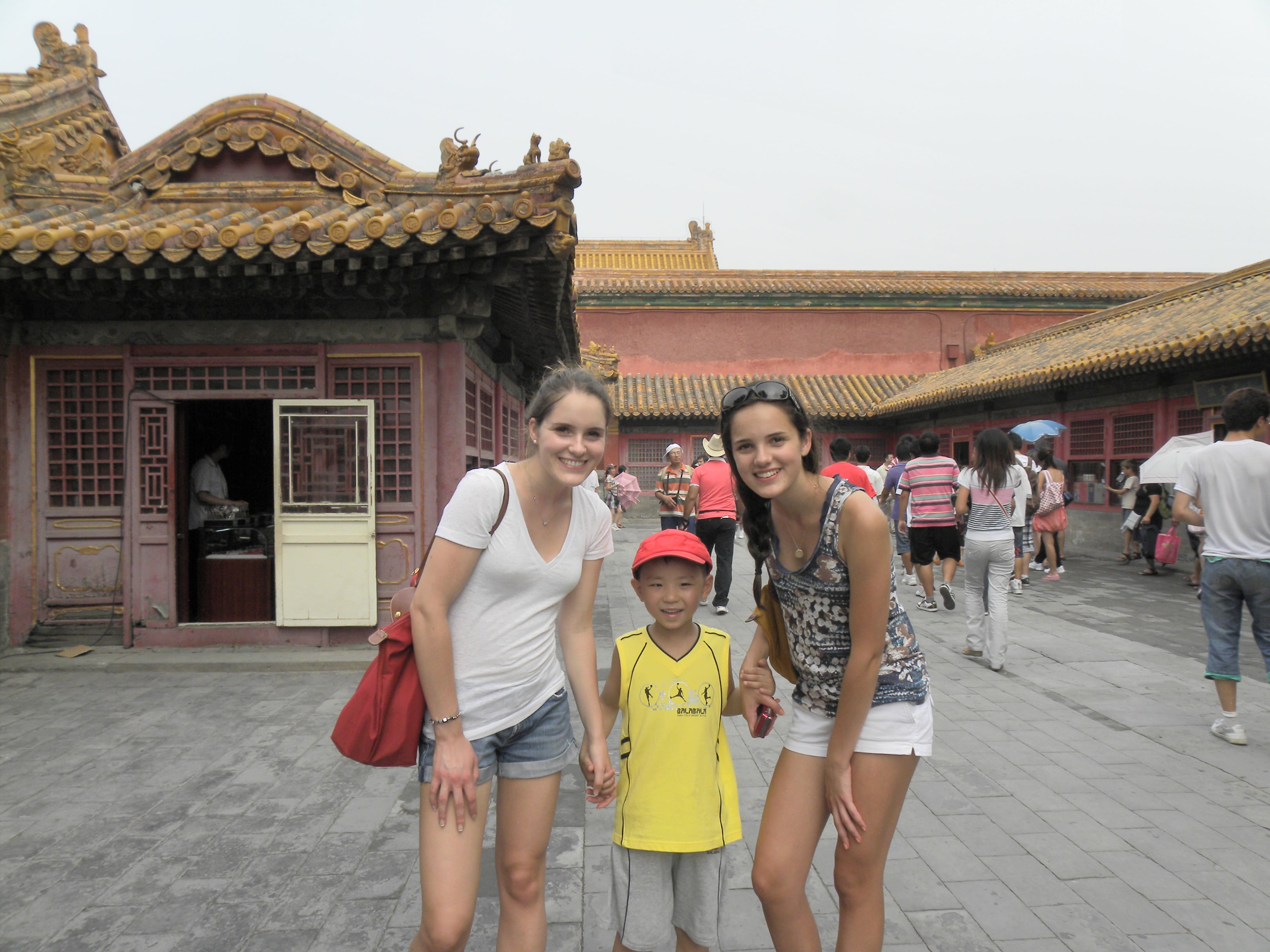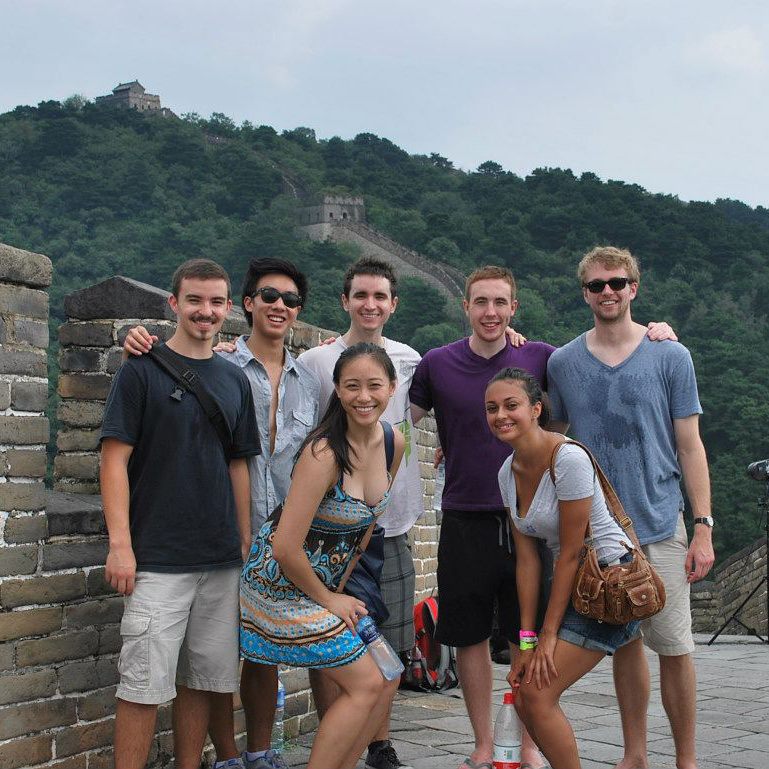Physical Address
304 North Cardinal St.
Dorchester Center, MA 02124
Physical Address
304 North Cardinal St.
Dorchester Center, MA 02124

Have you ever wondered about common Chinese characters and phrases? The Chinese language contains approximately 50,000 characters, but it can help you in a long way to sound like a native if you know common characters and phrases. Learning basic Mandarin Chinese characters, words, and phrases are not as daunting as people thought. Is the idea of learning Chinese characters strike fears in your heart? But if you know how to respond to common Chinese sentences, you can effectively interact with the native Chinese people. When you master these chunks of sentences, you may then consider studying Chinese in China
Chinese characters are made up of different strokes, and each character has its specific pronunciation. Even a specific change in the pronunciation alters the meaning of the character. If you are aiming to learn mandarin, learn 2500 basic characters of Chinese. You can combine those characters to create thousands of words. There are interesting Chinese Language apps that will help you keep up with the progress
Even if you plan to visit China, a basic understanding of Chinese characters and phrases can help you communicate with Chinese folks. But I am here to tell you that it will not take years to sound like a native if you know common characters and phrases.
I’m not writing this article to teach you hanzi (Chinese Characters), but I will tell you how to pronounce specific words. If you know 100 common characters and phrases, you can understand half of the words without getting confused. Exciting? Let us suppose if you know 1000 words, and you can understand 75% of Chinese text. Doesn’t it seem that difficult now? Right? Our curated list of common Chinese characters and phrases is your guide

Chinese is a tonal language that means a word can have different pronunciations, and meaning is based upon the pronunciation. For example, if you say “ma,” depending upon the pronunciation, it can mean a horse or mother.
There are five primary tones in Chinese. Each one has a different accent and meaning. Let us take the example to understand how each tone sounds for the word “ma.”
Mā 媽: Flat Tone, means mother
Má 麻: Rising Tone, means numb
Mǎ 馬: Falling-Raising Tone, means horse
Mà 罵: Falling Tone, means to scold
Ma 嗎: Neutral Tone, (go for the questions to answer yes or no)
Can you observe each inflection has a different tone? If you can know the logical understand of these primary tones, you can easily learn several innovative words. A slight change in the pronunciation represents a different meaning of a particular word.
I will teach Mandarin Chinese characters and phrases because mandarin is the common language spoken all over china. People living in Taiwan and Singapore speak Mandarin, but there are many other places where Mandarin is not spoken. For example, if you are planning to visit a major travel destination in Hong Kong, they speak a different language entirely.
Chinese characters are so complex, and it is tedious to learn all of them. Chinese linguists developed pinyin that converts the Chinese characters into readable form. Using the English alphabets, it converts the Chinese character to be readable by western leaners. In fact, you are already interacted with the Pinyin above by reading the various pronunciation and tones of the word “ma.”
You can never mater another language without practicing. Without serious study, you may not be able to master the Chinese language. The best way to gather the command on the language basics is to listen to the words and phrases’ pronunciation.
If you have command in the English language, you can use Google translator to input the words in English and listen to the word pronunciation in Chinese, Amazing?

It is a commonly used word that means “I.” It also appears in the phrase where “us” and we are used. Let’s take the example to understand it clearly 我回家了(wǒ huí jiā le) that means, I went home. Another example, 我们一起去的 (wǒ men yī qǐ qù de) that means we.
In English translation, it means “to be.” It is used where we need to combine two nouns. For instance, 我是中国人(wǒ shì zhōng guó rén) means, I’m a Chinese person. Another example, 她的鞋是红色的(tā de xié shì hóng sè de) means, her shoes are in red.
In English translation, it means ‘not.’ It is commonly used where we mean isn’t. For example, 我不想去(wǒ bù xiǎng qù) means, I do not want to go. 他不是美国人(tā bú shì měi guó rén) means He is not American.
The literal meaning 在 (zài) is shown in the specified location. In English translation, it means ‘at.’ For instance, 我在机场(wǒ zài jī chǎng) means I’m at the Airport.
It is the most commonly used Chinese character that means people. It is used for the people, person, or man. For example, 人生的目的是什么? (rén shēng de mù dì shì shén me) means what the meaning of human life is. (Here it indicates a person).
It is used to show the usage of past tense. It can also be used in the intensify adjective. For instance, 我来到美国两年了(wǒ lái dào měi guó liǎng nián le) means I have been in America for two years. Let us take another example, 我吃晚饭了(wǒ chī wǎn fàn le) means I ate dinner.
It is used as the plural for the human pronoun or human nouns. For example, 女士们,先生们,大家晚上好! (nǚ shì men ,xiān sheng men ,dà jiā wǎn shàng hǎo) means, Ladies and gentlemen, Good evening.
Let us get started by learning simple, chinses greeting phrases. In case you are planning to visit China, this will help you to interact with the native people of China.
How to say “Hello” in Chinese?
We can say hello in Chinese by using the simple words nǐ hǎo (你好). Pay close attention to the pronunciation of words. The words “a” and “i” have the same falling and raising pronunciation. You can improve your pronunciation by listing to audios and practice properly. Explore more on how to say Hello in Chinese
If you are meeting a native Chinese, you can start your conservation with the nǐ hǎo (你好). It is a great way to greet someone, either a hotel receptionist or a taxi driver.
Now, if you want to carry on your conservation, your next question should be, “How are you?” Right?

It is still so simple. Will you say Nǐ hǎo ma?
你好吗
吗, this represents the question mark.
If you are an English speaker, it will not difficult for you to learn these simple and short phrases. I hope you are enjoying learning these small phrases. Are you?
Hey, wait!
“I’m Good” – In Chinese
To answer the Nǐ hǎo ma, you will reply with hěn hǎo (很好). Don’t forget to listen to the pronunciation so that you will sound like a native Chinese speaker.
If we break both words, hěn 很 mean I am, and hǎo好 mean good. You can use the “good” in another sentence, too, where it is required.
Now, this one is a bit tricky if you have to idea about pinyin consonants’ pronunciation. You will say Qǐng (请) (Please). In Chinese, the pronunciation of ‘Q’ sounds like “ch,” so it will pronounce as “ching.”
Learning a new language is challenging, but you are consistent in learning, you can easily make your way.
Xièxie (谢谢) means Thank You in Chinese. In thankyou pronunciation, the X will sound like “sh” in English. In English, it will pronounce as shi-eh shi-eh. Read an extensive article on how to translate thank you to Chinese
Now, you want to respond, “You are Welcome,” Right?
The response of the Xièxie (谢谢) is Bùyòng xiè! (不用谢) that means you are welcome. If we check the literal meaning of 不用谢, it means there is no need to say thanks. The 不 means NO, which is considered the negative prefix, but the used tone changes the meaning.
Suppose it is the morning time in China, and you are meet a native Chinese; I know you want to say Good Morning but confused because you do not know how to pronounce. Do not worry, and I will teach everything. Keep reading!
It is not at all tricky; you will simply say politely, zǎo shang hǎo (早上好).
There are diverse ways to say Good Morning Chinese. But you can also respond with just zǎo (早) or zǎo ān (早安) (use this if you are casually speaking to someone).
In mandarin, a good night is translated as wǎn’ān (晚安)). The literal meaning of wǎn’ān means “safe night.”
A formal way to say Goodbye in Chinese is zàijiàn (再见). There are diverse ways to say Goodbye in Chinese; you can also say huítóu jiàn (回头见), which means to see you later.
There is no exact transition for the word ‘Yes.’ You can just simply say Shì de (是的).
Same for the ‘no,’ there is no exact translation for the ‘no.’ There are two formats way to say no, bù (不) or bùshì (不是).
To apologize or to get someone’s attention, you can say, Bù hǎoyìsi (不好意思) that means excuse me.
The phrase Duìbùqǐ (对不起) is used to say I am sorry. It is used when you made a mistake. Another word Bù hǎoyìsi to say sorry.
Chek this article on how to say I am sorry in Chinese
If you want to ask someone Do you speak English, you can say, Nǐ huì shuō yīngyǔ ma?
(你会说英语吗?)
But what if someone speaks Chinese?
You can say, Nǐ huì shuō zhōngwén ma? (你会说中文吗?)

If you are meeting someone for the first time, you want to know their name, Right? But how to ask in Chinese. A simple phrase is used to ask someone’s name, “Nǐ jiào shénme míngzì? (你叫什么名字?
But if someone asks your name, you can simply say, Wǒ jiào… (我叫…) by ending your name in the last.
There are hundreds of most common Chinese Words and Phrases but to help you gain momentum, we have below 100 most used words for your perusal. Our Online Chinese Language Program allows you to learn Chinese online
| 的 | de | grammatical particle, of |
| 一 | yī | one, a little |
| 是 | shì | to be |
| 不 | bù | not |
| 了 | le | verb particle marking a new situation or a completed action |
| 人 | rén | person |
| 我 | wǒ | I, me, my |
| 在 | zài | at, located at |
| 有 | yǒu | have, there is |
| 他 | tā | he, him, |
| 这 | zhè | this |
| 中 | zhōng | in the middle of |
| 大 | dà | big |
| 来 | lái | come |
| 上 | shàng | above, on, over, top, (go) up, last |
| 国 | guó | country, state, nation, |
| 个 | gè | measure word |
| 到 | dào | to, towards, until, arrive, reach |
| 说 | shuō | speak, say (=说话 shuōhuà) |
| 们 | men | (ex. 我们 | wǒmen | we) |
| 为 | wèi | for, for the sake of, in order to |
| 子 | zǐ | child, son |
| 和 | hé | and, together, with |
| 你 | nǐ | you, your |
| 地 | dì | earth, ground, soil, place, position, distance |
| 出 | chū | go out, come out, in direction out from something |
| 道 | dào | way, path, channel, way, say, a streak (of light), doctrine, |
| 也 | yě | also, as well |
| 时 | shí | period, season |
| 年 | nián | year |
| 得 | de | (ex. 走得快 | zǒude kuài | walk quickly) |
| 就 | jiù | just, simply, right away 就要 jiùyào about to (do something) |
| 那 | nà | that |
| 要 | yào | want, will, shall, need, important, essential |
| 下 | xià | below, under, (go) down, next (as opposed to previous/last) |
| 以 | yǐ | use, take, according to, because of, in order to |
| 生 | shēng | give birth, life |
| 会 | huì | can, able, meet, meeting, society, union, party |
| 自 | zì | from, since |
| 着 | zhe | verb particle marking a continuing progress/state |
| 去 | qù | go, leave, depart |
| 之 | zhī | subordinator similar to 的 de |
| 过 | guò | pass, cross, go by, exceed, |
| 家 | jiā | home, house, family |
| 学 | xué | study, learn |
| 对 | duì | correct, answer, treat, agree, mutual, pair |
| 可 | kě | ~able, (=可以 kěyǐ) may, can |
| 她 | tā | she, her |
| 里 | lǐ | neighbourhood, half kilometer, |
| 后 | hòu | behind, back |
| 小 | xiǎo | small |
| 么 | me | (interrogative suffix) 什么? shénme? / What? |
| 心 | xīn | heart |
| 多 | duō | many, much, more |
| 天 | tiān | sky, heaven, day |
| 而 | ér | and, furthermore |
| 能 | néng | can, be able |
| 好 | hǎo | good, good to…, easy to… |
| 都 | dōu | all |
| 然 | rán | right, correct, so, like that |
| 没 | méi | (=没有 méiyǒu) haven’t, there isn’t |
| 日 | rì | sun |
| 于 | yú | in, at, for, to, from, by, than |
| 起 | qǐ | rise, start |
| 还 | hái | still, yet |
| 发 | fā | deliver, utter, express, shoot, emit, develop, expand |
| 成 | chéng | (=成为 chéngwéi) become, ; 成功 chénggōng succeed; 完成 wánchéng accomplish, complete, |
| 事 | shì | matter, affair, thing, event, accident, job, responsibility |
| 只 | zhǐ | only, just, merely |
| 作 | zuò | do, make |
| 当 | dāng | serve as |
| 想 | xiǎng | think, feel, consider, want, remember |
| 看 | kàn | see, look at, think |
| 文 | wén | language, literature |
| 无 | wú | without, nothingness, have not |
| 开 | kāi | open |
| 手 | shǒu | hand, a person skilled in something |
| 十 | shí | ten |
| 用 | yòng | use |
| 主 | zhǔ | lord, master, host, god, |
| 行 | xíng | go, OK |
| 方 | fāng | side, square |
| 又 | yòu | again, both… and… |
| 如 | rú | like, as, as if |
| 前 | qián | in front, previous, ago, former, first |
| 所 | suǒ | place |
| 本 | běn | basis, origin, edition classifier for books, periodicals, files, etc. |
| 见 | jiàn | appear to be, meet with, call on |
| 经 | jīng | longitude (both geographic and in Chinese medecin), scripture, constant, regular, , deal with |
| 头 | tóu | head, top, first |
| 面 | miàn | face, surface, |
| 公 | gōng | public, official |
| 同 | tóng | same, with |
| 三 | sān | three |
| 已 | yǐ | already |
| 老 | lǎo | old, venerable, outdated |
| 从 | cóng | from, through, join, follower, secondary |
| 动 | dòng | move, change, arouse |
| 两 | liǎng | two (before classifier), 50 grams |
| 长 | cháng | long, lasting length |
History of Chinese Characters
Traditional Characters
Simplified Chinese Characters
Traditional Vs. Simplified Chinese Characters
Pinyin

Great educational article.I am a teacher and I love to read content like this.
thanks